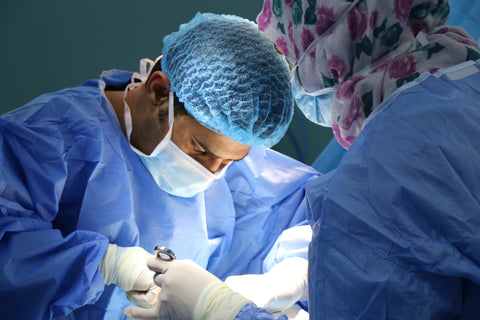Will I need jaw surgery to correct my underbite?

If you have an irregular bite, you will need orthodontic treatment to correct it, so will you need jaw surgery? Carry on reading to learn whether jaw surgery is the only option available to fix an underbite.
What is an underbite?
An underbite is a type of malocclusion and can be seen when your top teeth rest behind your bottom ones when you bite down. An underbite is caused by a misalignment of the lower jaw and does affect your face shape. In comparison to a correct bite, the jaw of someone with an underbite will stick forward.
What happens if an underbite is left untreated?
If left untreated, a severe underbite may cause you some problems. These include:
- Pain caused by strained jaw muscles,
- Difficulty biting and chewing food,
- Your speech may be affected,
- Breathing difficulties,
- Bad breath,
- Bacteria infections.
Do I need jaw surgery to correct an underbite?
Braces such as traditional braces can treat a mild underbite, this may camouflage the appearance by giving you straight teeth, however, your jaw position will remain the same, this is a compromised result and may still leave you with existing problems. If the underbite is severe, a combination of orthodontics (braces) and jaw surgery will be required to ensure an optimum result is achieved. Getting treatment as soon as possible is a must, to avoid any of the side effects from occurring. So, how does jaw surgery work?
Underbite surgery is performed by a maxillofacial surgeon and is done under general anaesthesia. While jaw surgery can take a few hours, the results will be well worth it. It can be done multiple ways, sometimes singular jaw surgery is required and other times both top and bottom jaw surgery is required. This will be assessed by the surgeon and orthodontist as to how the best results can be achieved.
The surgery involves cutting the back of the lower jaw, near the wisdom teeth, so that the surgeon is able to move the lower jaw back into the correct position and likewise with the top jaw, cuts will be made in the top jaw and then the jaw will be brought forward. It then may involve plates and pins to hold the new position. Following the surgery, you will be given seating elastics to be worn to allow the bite to settle into the correct occlusion. Orthodontic treatment will continue following the surgery to finesse the end result.
If you think jaw surgery is what you need to fix your underbite, then contact us and book a consultation with one of our orthodontists to find out more.
- Mohammad Malik

